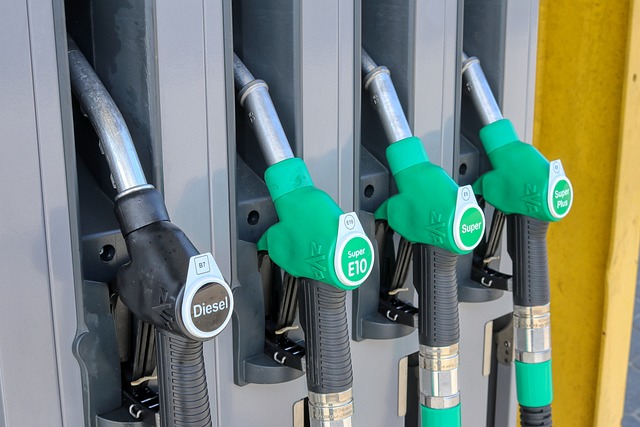Power Generators – Common Uses and Key Features in the US
In the US, power generators are often used to ensure electricity during outages, for outdoor activities, or on worksites. They come in various sizes and fuel types, offering solutions for both personal and professional needs. Discover what’s often highlighted about them.

What are the primary uses of power generators?
Power generators serve numerous purposes, catering to both residential and commercial needs. In homes, they provide backup electricity during outages caused by severe weather, equipment failures, or grid maintenance. This ensures that essential appliances like refrigerators, heating systems, and medical devices continue to function. For businesses, power generators are crucial in maintaining operations during blackouts, preventing data loss, and ensuring customer service continuity.
In industrial settings, generators often serve as primary power sources for construction sites, outdoor events, and remote locations. They’re also vital for emergency services, hospitals, and data centers, where uninterrupted power supply is critical. Additionally, generators play a significant role in disaster relief efforts, providing electricity in areas affected by natural calamities.
What types of fuel are commonly used in power generators?
Power generators can operate on various fuel types, each with its own advantages and considerations. The most common fuel types include:
-
Gasoline: Widely available and suitable for portable generators, gasoline is often used for small-scale residential backup power.
-
Diesel: Known for its efficiency and longevity, diesel generators are popular for industrial applications and larger-scale backup systems.
-
Natural Gas: Clean-burning and convenient, natural gas generators are often used for whole-house backup power and commercial applications.
-
Propane: With a long shelf life and clean-burning properties, propane generators are versatile and suitable for both residential and commercial use.
-
Solar: Renewable and environmentally friendly, solar generators are gaining popularity for off-grid applications and as supplemental power sources.
The choice of fuel depends on factors such as availability, cost, environmental concerns, and the specific power requirements of the application.
What are the differences between portable and stationary generators?
Power generators come in two main configurations: portable and stationary. Each type has its unique features and applications:
Portable Generators:
-
Compact and mobile, ideal for temporary or occasional use
-
Suitable for camping, tailgating, and small-scale emergency backup
-
Generally less powerful, typically ranging from 3,000 to 8,000 watts
-
Require manual setup and fuel refilling
-
Often run on gasoline or propane
Stationary Generators:
-
Permanently installed at a fixed location
-
Provide whole-house or whole-building backup power
-
More powerful, with outputs ranging from 5,000 to over 150,000 watts
-
Often connected to existing fuel lines (natural gas or propane)
-
Activate automatically during power outages
-
Require professional installation and maintenance
The choice between portable and stationary generators depends on power needs, budget, and intended use.
How do you determine the right generator size for home or work?
Selecting the appropriate generator size is crucial for ensuring adequate power supply without unnecessary costs. To determine the right size:
-
List all essential appliances and devices that need power during an outage.
-
Calculate the starting and running wattage for each item.
-
Add up the total wattage required.
-
Choose a generator with a capacity that exceeds your total power needs by 10-20% for safety margin.
For homes, common generator sizes range from 5,000 to 20,000 watts. Small businesses might require 20,000 to 50,000 watts, while larger industrial applications can need 100,000 watts or more.
What are the key features to look for in a power generator?
When selecting a power generator, consider the following key features:
-
Power Output: Ensure it meets your wattage requirements.
-
Fuel Type: Choose based on availability, efficiency, and environmental concerns.
-
Run Time: Look for generators that can operate for extended periods without refueling.
-
Noise Level: Important for residential areas and noise-sensitive environments.
-
Portability (if applicable): Consider weight and wheel design for easy movement.
-
Automatic Start: Useful for immediate power restoration during outages.
-
Safety Features: Look for overload protection, low-oil shutoff, and carbon monoxide detection.
-
Warranty and Support: Ensure reliable after-sales service and parts availability.
What are some popular power generator brands and models in the US?
Several reputable brands offer reliable power generators in the United States. Here’s a comparison of some popular options:
| Brand | Model | Type | Power Output | Key Features | Estimated Price Range |
|---|---|---|---|---|---|
| Generac | Guardian 24kW | Stationary | 24,000 watts | Whole-house backup, Wi-Fi enabled | $5,000 - $7,000 |
| Honda | EU2200i | Portable | 2,200 watts | Quiet operation, fuel-efficient | $1,000 - $1,200 |
| Briggs & Stratton | Q6500 | Portable | 6,500 watts | Quiet power technology, CO Guard | $1,500 - $2,000 |
| Westinghouse | WGen7500 | Portable | 7,500 watts | Electric start, long run time | $800 - $1,000 |
| Kohler | 20RESCL | Stationary | 20,000 watts | Corrosion-resistant enclosure, 5-year warranty | $4,500 - $6,500 |
Prices, rates, or cost estimates mentioned in this article are based on the latest available information but may change over time. Independent research is advised before making financial decisions.
Power generators play a crucial role in ensuring continuous electricity supply for various applications. By understanding their common uses, fuel types, and key features, you can make an informed decision when selecting the right generator for your home or business needs. Whether you opt for a portable unit for occasional use or a stationary system for comprehensive backup, a well-chosen power generator can provide peace of mind and uninterrupted power when you need it most.




